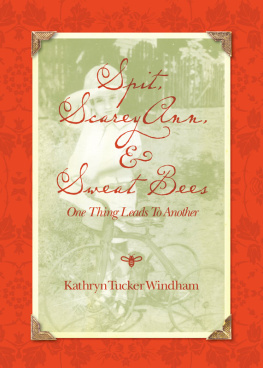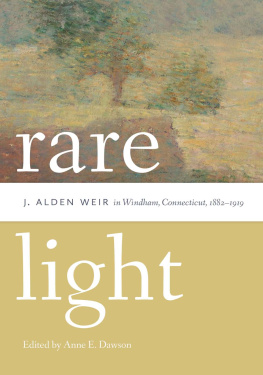Also by Kathryn Tucker Windham
Treasured Alabama Recipes (1967)
13 Alabama Ghosts and Jeffrey (1969)
Jeffrey Introduces 13 More Southern Ghosts (1971)
Treasured Tennessee Recipes (1972)
Treasured Georgia Recipes (1973)
13 Georgia Ghosts and Jeffrey (1973)
13 Mississippi Ghosts and Jeffrey (1974)
Exploring Alabama (1974)
Alabama: One Big Front Porch (1975)
13 Tennessee Ghosts and Jeffrey (1977)
The Ghost in the Sloss Furnaces (1978)
Southern Cooking to Remember (1978)
Count Those Buzzards! Stamp Those Grey Mules! (1979)
Jeffreys Latest 13: More Alabama Ghosts (1982)
A Serigamy of Stories (1983)
OddEgg Editor (1990)
The Autobiography of a Bell (1991)
A Sampling of Selma Stories (1991)
My Name is Julia (1991)
Twice Blessed (1996)
Encounters (1998)
The Bridal Wreath Bush (1999)
Common Threads (2000)
Its Christmas ! (2002)
Ernests Gift (2004)
Jeffreys Favorite 13 Ghost Stories (2004)
Alabama, One Big Front Porch (2007)
Spit, Scarey Ann, and Sweat Bees
One Thing Leads To Another
Kathryn Tucker
Windham
NewSouth Books
Montgomery | Louisville
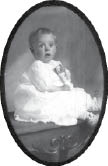
My baby photo, 1919
NewSouth Books
105 South Court Street
Montgomery, AL 36104
Copyright 2009 by Kathryn Tucker Windham. All rights reserved under International and Pan-American Copyright Conventions. Published in the United States by NewSouth Books, a division of NewSouth, Inc., Montgomery, Alabama.
ISBN-13: 978-1-58838-240-5
eBook ISBN: 978-1-60306-114-8
LCCN: 2009009232
Visit www.newsouthbooks.com.
For Thurza Hillery,
the only person who ever thought
I was perfect,
and for Thurzas daughter,
Bessie Gray Hillery,
the best playmate any little girl ever had.
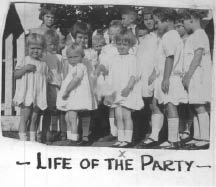
Contents
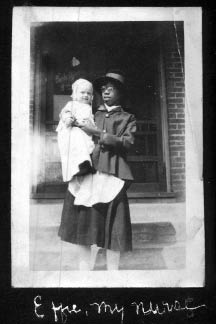
Outside my fathers bank, Thomasville, 1919.
My earliest memory is of being frightened by a big grasshopper.
My nurse, Effie, was pushing me in my baby buggy, and as we crossed a soggy spot in the path to Effies house, the green insect hopped on my coverlet, landing near my left hand. Effie quickly brushed the grasshopper away, but I had been terrorized.
It happened in the fall of 1920, soon after I turned two. Scoffers say I could not possibly remember such an early experience, but I do.
I dont know what brought that experience to mind; I havent thought of it in years. Perhaps reading the Old Testament story about the plagues that Jehovah punished hard-hearted Pharaoh with, infestations of flies, lice, and locusts, stirred my memory.
Though I am not a Bible scholar (there have been long periods of time when I did not read it at all), some months ago our preacher suggested that we read the New Testament, two chapters a day. I followed his suggestion and, using a modern translation, I completed the assignment. I missed the beauty of the language in the King James version, but I did have a better understanding of what I read.
Then I decided to read the Old Testament, two chapters at a time. I have discovered stories, some tenderly romantic and some violently gory, that I had never known about before.
Certainly I had never been taught them in my Methodist Sunday school classes nor were they included in any of the Bible story books in our home. I had good Sunday school teachers, but they would have been embarrassed to tell innocent children some of the stories Ive come upon.
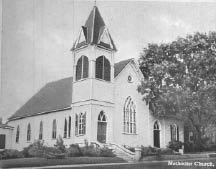
Postcard view of Thomasville Methodist
Church (no longer standing).
I must have had other teachers, but the ones I recall are Miss Daisy Clark, an elderly, gentle woman who seldom raised her voice above a whisper; Miss Julia Mary Allen, who taught me the Bible Alphabet; and Osceola Green, who sold ladies ready-to-wear at Bedsole Dry Goods Company and was the pianist in the orchestra that played for Saturday night dances at Bradfords Pond, about fifteen miles from Thomasville. I never attended those dances though I spent many happy daytime hours at Bradfords Pond.
Strangely enough, though I cannot remember what I read in last weeks TIME, I, after nearly eighty-five years, can still recite the entire Bible Alphabet except for the letter Z. I can begin with A, A soft answer turneth away wrath, and go right through the other letters until I reach Z. It had something to do with Zealousness, but I dont know what.
Back to the grasshopperSouthern storytellers do tend to stray.
If I had been older, old enough to listen to and wonder about superstitions, I might really have been frightened when that insect leapt on me. Theres an oft-repeated warning that if a grasshopper spits in your eye, youll go blind. Maybe thats why Effie brushed the intruder away so quickly.
Effie never talked to me about superstitions, but later our beloved cook, Thurza, did. Thurza wore a silver dime (all dimes were pure silver back then) tied around her ankle with a cotton string to bring good luck. Or was it to ward off evil? I forget. I do know she stuck a wooden match in her hair to cure a headache.
Mother would offer Thurza an aspirin, but she always replied, No thank you, maam. I just like to use matches.
I liked to use matches too, not for curing headaches (Ive never had a half a dozen in my whole long life) but for the fun of striking them, the magic of making fire. The only punishment I remember receiving as a child was for striking matches. I was about four or five years old, and I had been instructed never to strike matches unless there was an adult supervising me.
One day I disobeyed, and Mother caught me in the act. You like to strike matches, dont you? she said. Well, Ill let you strike all you want to.
She took me into the living room, sat me down in my little chair on the hearth, and handed me a new box of two hundred and fifty matches.
Strike them all, she told me.
Somehow it was no longer fun to make those blue-tipped matches burst into flame. The more I struck, the less fun it became. Cant I stop now, please? I begged.
No, Mother replied. She was rocking and reading the Literary Digest. You like to strike matches. Keep on. The box isnt even half empty yet.
So I kept on. There was no reprieve despite my pleas and tears. By the time I struck the last match, my fascination with making fire had vanished forever.
There were matches in every room of our house. We needed them to light the fires in the fireplaces in cold weather, and we needed them to light candles and lamps year round. The power to fuel our electric lighting came from the local sawmill which shut down at 10:30 every night and did not begin running again until 5:00 or 6:00 in the morning.
The night watchman at the mill blinked the lights at 10:00 and again at 10:20 every night, warning that they were about to go out. After 10:30 p.m. the whole town was dark. Dates always ended with the first blinking of the lights although sometimes the sweet farewells ran on until 10:20. For a young man to loiter at his sweethearts house after the lights went out created a right smart of gossip in the neighborhood.

